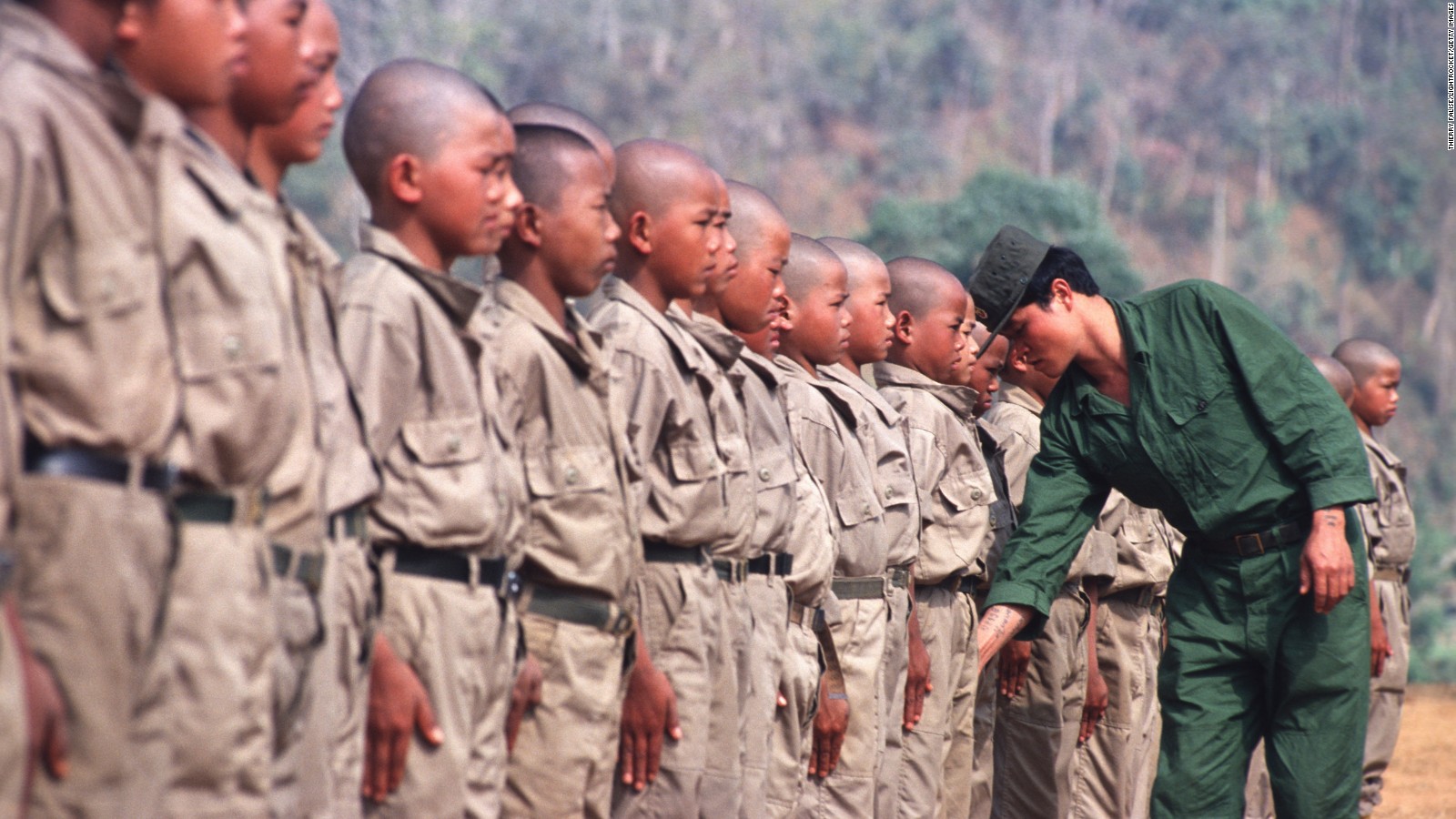Yemen's Conflict: Children Forced Into Driving Roles

Table of Contents
The Grueling Realities Faced by Child Drivers in Yemen
Child drivers in Yemen face conditions that are both physically and psychologically devastating. These children, often as young as 10 years old, are thrust into dangerous situations with little to no training or support. The harsh realities they endure include:
-
Dangerous Conditions: Driving in Yemen, even for experienced adults, is incredibly perilous. Roads are often damaged by conflict, littered with landmines and unexploded ordnance (UXO), and frequently traversed by armed groups. Child drivers lack the experience and judgment to navigate these hazardous conditions safely.
-
Lack of Safety Equipment: Many child drivers lack basic safety equipment like seatbelts and helmets, increasing their vulnerability to serious injury or death in accidents.
-
Long Hours and Exhaustion: They often work extremely long hours, frequently transporting goods or people across conflict zones, leading to physical exhaustion, malnutrition, and a compromised ability to drive safely.
-
Exposure to Violence: Child drivers are routinely exposed to the horrors of war, witnessing violence, death, and destruction, leading to profound psychological trauma.
-
Exploitation and Lack of Pay: These children are frequently exploited, receiving little or no pay for their dangerous work, and are often subjected to harsh treatment and abuse.
The psychological impact on these children is severe, often resulting in PTSD, anxiety, and depression. Many suffer from nightmares, flashbacks, and difficulty sleeping, significantly impacting their mental and emotional wellbeing.
The Drivers of Child Recruitment in the Yemeni Conflict
Several interwoven factors contribute to the recruitment of children as drivers in Yemen:
-
Poverty and Economic Hardship: The ongoing conflict has decimated Yemen's economy, pushing millions into extreme poverty. Desperate families are often forced to send their children to work, even in dangerous conditions, simply to survive.
-
Displacement and Lack of Education: Years of conflict have displaced millions, disrupting education systems and leaving children vulnerable to recruitment by armed groups. Without access to education, these children have limited opportunities and are more easily manipulated.
-
The Allure of Financial Incentives: While often meager, the promise of even a small income can be a powerful motivator for impoverished families to allow their children to work as drivers.
-
Deliberate Targeting by Armed Groups: Sadly, some armed groups actively target vulnerable children, exploiting their desperation and using them for their own purposes.
-
Breakdown of State Institutions: The collapse of state institutions and the lack of effective child protection mechanisms have created a vacuum, leaving children even more exposed to exploitation and abuse. The absence of strong rule of law allows illegal activities to thrive, including the recruitment of child soldiers and child laborers.
The Long-Term Consequences for Child Drivers
The experiences of child drivers in Yemen have devastating long-term consequences, impacting their physical, mental, and social well-being:
-
Physical Injuries and Disabilities: Accidents, violence, and exposure to hazardous materials can lead to permanent physical injuries and disabilities.
-
Mental Health Challenges: PTSD, depression, anxiety, and other mental health issues are widespread among former child drivers, often leading to long-term difficulties in daily life.
-
Difficulty Reintegrating into Society: Returning to normal life after such traumatic experiences is incredibly challenging. These children may struggle to reintegrate into education, find employment, or form healthy relationships.
-
Social Stigma and Discrimination: Former child soldiers and child laborers often face social stigma and discrimination, further hindering their ability to rebuild their lives.
-
Limited Access to Rehabilitation: Access to comprehensive rehabilitation services, including psychosocial support and medical care, is often severely limited, hindering their recovery.
International Efforts and Humanitarian Responses
Numerous international organizations, NGOs, and humanitarian groups are working to address the issue of child recruitment in Yemen. These efforts include:
-
UN Monitoring and Prevention: The United Nations plays a crucial role in monitoring child recruitment and advocating for the protection of children in conflict zones.
-
Humanitarian Aid: Organizations like UNICEF and the ICRC provide essential humanitarian aid, including food, shelter, medical care, and education, to vulnerable children and families.
-
Rehabilitation and Reintegration Programs: NGOs work tirelessly to provide rehabilitation services, psychosocial support, and reintegration programs for former child soldiers and child laborers.
-
Advocacy Campaigns: Global advocacy campaigns raise awareness about the plight of children in Yemen and push for stronger international action.
However, significant challenges remain, including limited funding, access constraints within conflict zones, and the complex political dynamics of the conflict. Increased funding and support for child protection programs are crucial to enhance these efforts and ensure that vulnerable children receive the support they need.
Conclusion
The forced recruitment of children into driving roles in Yemen represents a profound humanitarian crisis with devastating long-term consequences. The grueling realities these children face, the root causes of their recruitment, and the lasting physical and psychological impacts underscore the urgent need for international action. We must support organizations working to protect these vulnerable children, advocating for stronger international mechanisms to prevent child recruitment and address the root causes of this conflict. Learn more about the crisis and donate to organizations like UNICEF, Save the Children, and the ICRC to help make a difference in the lives of these children. Let's work together to end the exploitation of children in Yemen and ensure a better future for generations to come. The plight of child drivers in Yemen demands our immediate attention and sustained action.

Featured Posts
-
 New Womens Fitness Brand Nike And Kim Kardashians Skims Team Up
May 06, 2025
New Womens Fitness Brand Nike And Kim Kardashians Skims Team Up
May 06, 2025 -
 Jeff Goldblums Family Day Out Como 1907 Football Match
May 06, 2025
Jeff Goldblums Family Day Out Como 1907 Football Match
May 06, 2025 -
 Tracee Ellis Rosss Dazzling Marni Fall 2025 Runway Look
May 06, 2025
Tracee Ellis Rosss Dazzling Marni Fall 2025 Runway Look
May 06, 2025 -
 Analyzing Met Gala 2025 Celebrity Fashion Trends And Competition
May 06, 2025
Analyzing Met Gala 2025 Celebrity Fashion Trends And Competition
May 06, 2025 -
 Recession Indicators On Social Media From Lady Gaga To Converse
May 06, 2025
Recession Indicators On Social Media From Lady Gaga To Converse
May 06, 2025
Latest Posts
-
 Spike Lees Super Bowl Tribute Remembering Samuel L Jacksons Narrative Work
May 06, 2025
Spike Lees Super Bowl Tribute Remembering Samuel L Jacksons Narrative Work
May 06, 2025 -
 Sabrina Carpenter And Taylor Swift A Report On A Recent Relationship Drama Call
May 06, 2025
Sabrina Carpenter And Taylor Swift A Report On A Recent Relationship Drama Call
May 06, 2025 -
 Spike Lees Super Bowl Shoutout To Samuel L Jackson A Decade Long Friendship
May 06, 2025
Spike Lees Super Bowl Shoutout To Samuel L Jackson A Decade Long Friendship
May 06, 2025 -
 Dolly Partons Working Principles Insights From Her Collaboration With Sabrina Carpenter
May 06, 2025
Dolly Partons Working Principles Insights From Her Collaboration With Sabrina Carpenter
May 06, 2025 -
 Report Sabrina Carpenter Reaches Out To Taylor Swift Amidst Relationship Troubles
May 06, 2025
Report Sabrina Carpenter Reaches Out To Taylor Swift Amidst Relationship Troubles
May 06, 2025
